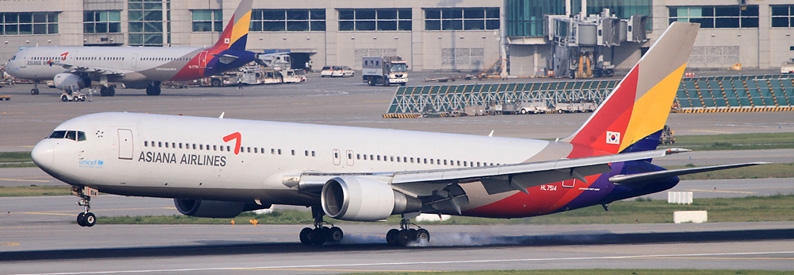Korean Air-Asiana merger may harm competition

Korea’s fair trade chief, Joh Sung-wook, has cast doubt on the planned merger between Korean Air (KE, Seoul Incheon) and Asiana Airlines (OZ, Seoul Incheon), suggesting that there are serious monopoly concerns and that a solution to these must be found or the deal may fail, local media reported.
At an annual parliamentary review of the Fair Trade Commission’s work on October 5, Joh warned that a combination of the country’s two biggest airline groups is likely to restrict competition, “so we need to look at it in more depth.”
She added: “We have decided to start negotiating with them. The FTC will prepare an evaluation report after listening to the economic analysis of the FTC and the opinions of witnesses and experts. If there is a restriction to competition, we will discuss what measures can be taken to alleviate it.”
She said that the antitrust regulator’s review of the merger would wrap up no later than the end of this year, given the significance of the deal to the economy.
“The reason why the Fair Trade Commission has not already taken action is that there may be conflicts with measures from other countries’ competition authorities,” she explained.
Earlier this year, Korean Air reported the proposed acquisition of a 63.9% stake in Asiana by Korean Air’s conglomerate parent Hanjin Group – also including a possible merger of their low-cost subsidiaries Air Busan, Air Seoul, and Jin Air – to the commission and to a number of competition regulators in countries the two carriers fly to.
So far, it has been approved in countries such as Malaysia, the Philippines, Taiwan, Thailand, and Turkey, but other probes are still ongoing, including those in Korea and key markets such as the European Union, Japan, and the United States. Because of this, the complete merger is not expected to happen until late 2024, even though the financial consolidation of the firms could occur as early as next year.
